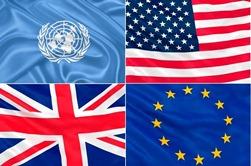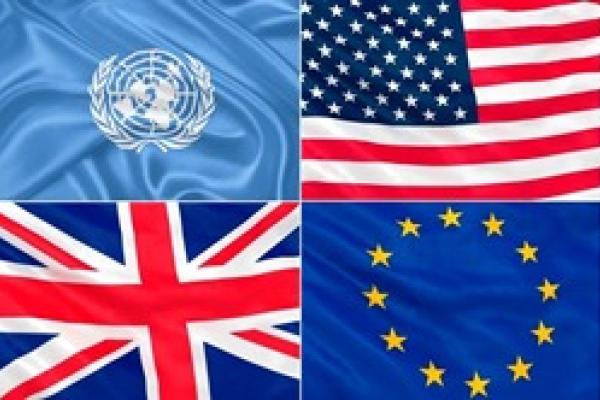
John Hamlyn
Published: May 01, 2016

Sanctions are restrictions or prohibitions imposed by a country or group of countries on another country, entity or individual. They are intended to coerce certain behaviour from, or achieve a certain result with respect to, the sanctioned party. Sanctions can take many forms, including economic, trade, diplomatic, military and sports.
Notable sanctions in recent years have been implemented by the EU, the US and the UN, and have targeted nations including Iran, Cuba, North Korea, Syria and Russia in respect of issues such as nuclear proliferation programmes and suspected human rights abuses.
Below we will look at the most recent updates in respect of several important sanctions regimes – Iran, Cuba and North Korea. Given that sanctions are subject to alteration at short notice, Members are encouraged to contact the Managers for the latest information, and advice upon issues which may affect Club cover.
Iran
In January 2016, the Joint Comprehensive Plan of Action (“JCPOA”) was implemented. This comprised an agreement by Iran to scale back its nuclear programme, in return for which various sanctions imposed by the EU, UN and US would be reduced or lifted.
In particular, the EU lifted sanctions which had been incrementally imposed since 2009 targeting Iran’s oil, gas, petrochemical, shipping, insurance and financial sectors. Sanctions remain in respect of activities, goods and equipment relating to Iran’s nuclear industry, and for some dual-use goods (products and technologies normally used for civilian purposes but which may have military applications). Asset freezing measures targeting a large number of Iranian entities were also lifted, meaning that lawful transactions can be undertaken with those entities, although restrictions remain in place for certain individuals and entities subject to human rights or nuclear proliferation measures.
The US lifted sanctions on non-US companies and persons having involvement in certain activities or dealing with certain sectors of the Iranian Government and economy, including Iran’s energy, shipping, and shipbuilding sectors; the sale, supply or transfer to or from Iran of precious metals, graphite, and raw or semi-finished metals (except those for use in connection with Iran’s military or ballistic missile programmes or which have a potential nuclear end-use); and facilitating financial transactions involving certain Iranian financial institutions. The US also removed the asset freeze against certain individuals and entities.
However the US maintained its primary sanctions, which continue to prohibit US persons from engaging in business with Iran, save for a limited number of areas for which exemptions apply or that are authorised by the Office of Foreign Assets Control (OFAC) (mainly concerning provision of foodstuffs, medical items and Iran’s aviation sector). US dollar transactions in connection with Iranian business also remain prohibited, the effect of which may be to continue to stifle lawful business conducted by non-US companies.
It should be noted that under the terms of the JCPOA the EU and US reserve the right to “snap back” sanctions on Iran – i.e. reverse the relaxation or lifting – if Iran is found to have violated its obligations.
Cuba
In March 2016 the US Treasury’s Cuban Assets Control Regulations (“CACR”) and the US Department of Commerce’s Bureau of Industry and Security’s (“BIS”) Export Administration Regulations (“EAR”) were amended to further relax trade and travel restrictions in respect of Cuba which have been in place for many decades.
The amendments are designed to make it easier for US citizens to travel to Cuba and interact with Cuban nationals, to relax certain restrictions on banking transactions involving Cuban nationals or financial institutions, and to reduce some restrictions on the carriage of cargo to Cuba and the import into the US / consumption by US persons of certain goods from Cuba.
As a result, US banks can now process a wider range of transactions involving Cuba, including ‘U-turn’ transactions in which Cuba or a Cuban national has an interest. Banks may now handle a transaction which starts outside the US, passes through a US bank, and moves outside the US – as long as the originator and beneficiary of the transaction are not subject to US jurisdiction.
US persons can now establish a physical or business presence in Cuba where that business involves export/re-export of goods to Cuba, mail, parcel or cargo transportation services, or travel / carrier services, provided that such business is authorised by CACR or is otherwise CACR exempt.
Vessels carrying cargo from the US bound for countries other than Cuba may stop briefly in Cuba without obtaining a license from the BIS for that cargo to move through Cuba, as long as the cargo leaves on the same vessel, does not enter the Cuban economy, and is not moved to another vessel while in Cuba. In addition, US individuals can travel to Cuba to participate in full-time educational exchange activities, but prohibitions on pure tourist travel remain in force.
The US has also removed Cuba from the United States Coast Guard’s list of countries which are determined not to have in place effective anti-terrorism measures at their ports. This eases the security burden placed on vessels calling at a US port after calling at a Cuban port. However, vessels may only make such calls in very limited circumstances, where such movements involved activities expressly licensed under the CACR. The 180 day rule remains in effect, providing that no vessel, US or foreign flagged, that calls at Cuba to engage in the trade of goods or services may thereafter call at a US port for 180 days, except pursuant to a license issued by the Secretary of the Treasury.
North Korea
On 2 March 2016 the UN Security Council (“UNSC”) adopted Resolution 2270 (2016) (“the Resolution”) in response to the nuclear test conducted by the Democratic People’s Republic of Korea (“DPRK”) on 6 January 2016, and the launch of a ballistic missile by DPRK on 7 February.
The Resolution expands on existing prohibitions on activities in respect of the provision, manufacture, maintenance or use of nuclear-related, ballistic missile-related or other weapons of mass destruction(“WMD”)-related items, materials, equipment, goods and technology. The Resolution extends the prohibition to all arms and related material, including small arms and light weapons, as well as to associated financial transactions, technical training, advice, services or assistance which could contribute to supporting DPRK’s armed forces.
It also allows UN States to (amongst other things); inspect cargo within or transiting through their territory going to or from DPRK; prohibit the chartering of their flagged vessels to DPRK, and provision of crew services; prohibit their own nationals or those subject to their jurisdiction from registering vessels in DPRK, using the DPRK flag on their vessels, or owning, leasing or operating a DPRK flagged vessel. UN states can also deny the use of their airspace to any aircraft known to be carrying prohibited items, prevent the export by DPRK of various ores and minerals by any vessels or aircraft flagged to that UN state, and prohibit the sale to DPRK of various aviation and other fuels. Finally, UN states can expel DPRK diplomats or government representatives who have assisted the violation of UN resolutions, and can prevent teaching or training of DPRK nationals within their territories or by their nationals, that could contribute to nuclear proliferation.
The Resolution subjects to asset freeze 31 ships identified as being economic resources controlled or operated by DPRK shipping company Ocean Maritime Management. It also identifies a further 16 individuals and 12 entities for asset freeze, including Chongchongang Shipping Company (alias Chong Chon Gang Shipping Co Ltd), and a number of banks and trading companies.
In March 2016 the EU implemented the above UN sanctions against DPRK. In addition to the UN-mandated restrictions on the operations of DPRK banks in the EU and on the operation of EU banks in DPRK, EU Member States are now required to exercise enhanced monitoring of transactions between EU banks and DPRK banks.
In February 2016, the US expanded the scope of their sanctions via the North Korea Sanctions and Policy Enhancement Act. The Act requires mandatory designation of individuals and entities found to have knowingly imported, exported, or re-exported to, into, or from DPRK certain controlled goods, services, or technology connected with WMDs or their delivery systems, or which materially contribute to the use or development of nuclear, radiological, chemical, or biological weapons or their delivery systems.
Individuals or entities may also be designated; for the import, export or re-export to or from DPRK of arms, luxury goods, or training, advice or significant financial transactions relating to the manufacture or use of WMDs; if involved in censorship or serious human rights abuses by the Government of DPRK; if engaged in money laundering or counterfeiting, or narcotics trafficking that supports the Government of DPRK or its senior officials; if engaged in cybersecurity abuses on behalf of the Government of DPRK; for selling or supplying to or from the Government of DPRK or its representatives metals, ores or software, for use in processes related to WMDs and their delivery systems or other proliferation activities, or for use by DPRK’s armed forces, or security or intelligence services.
Persons may also be designated if they are involved in providing support, goods or services to UN-designated persons, bribing an official of the Government of DPRK, or stealing or embezzling public funds for the benefit of an official.
Finally, the Act provides for enhanced monitoring of trade involving DPRK, including; gathering information on the effectiveness of procedures at foreign air and sea ports at preventing the facilitation of certain prohibited activities; enhanced inspection of goods entering the US from ports or airports identified as operating insufficient anti-facilitation procedures; and the forfeiture of ships and aircraft used to facilitate certain prohibited activities.
Regardless of which sanctions regime applies, and whether sanctions may have been relaxed, lifted or strengthened, we recommend the usual due diligence should be undertaken in relation to any cargo carried and its use, and on all parties to the trade / transaction. Reliance on statements made by trading partners as to their due diligence will not necessarily provide a defence should trade result in a breach of sanctions.
The Club publishes regular sanctions updates on our website. For further information, please see our sanctions page.
Article by John Hamlyn


